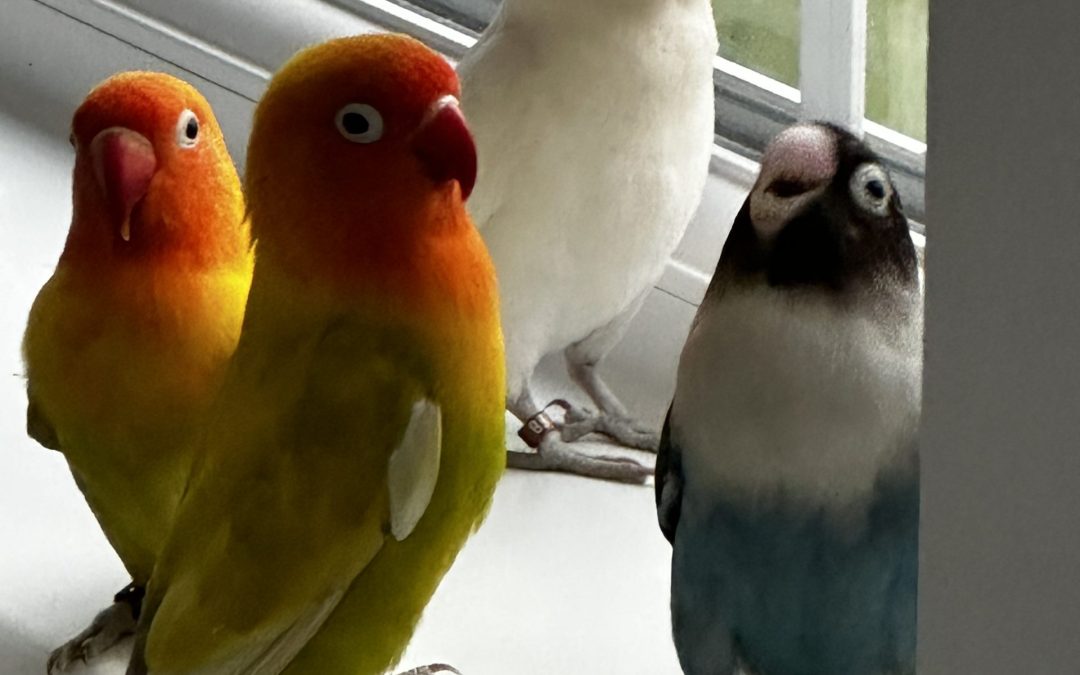Lovebirds are a type of small parrot that are popular as pets due to their colorful plumage, lively personalities, and affectionate nature. One of the most interesting and endearing aspects of lovebirds is their ability to talk, or mimic human speech. In this blog, we'll explore the talking ability of lovebirds and what you can expect if you decide to bring one into your home.
First, it's important to note that not all lovebirds will talk. Like any animal, each lovebird has its own personality and disposition, and some may be more talkative than others. Additionally, it's worth noting that not all lovebirds will mimic human speech perfectly - some may only learn a few words or phrases, while others may be able to string together entire sentences.
That being said, if you're interested in getting a lovebird that can talk, there are a few things you can do to increase the likelihood of success. The first is to start working with your bird at a young age - ideally, when it's still a baby. Lovebirds are most receptive to learning new things when they're young, so the earlier you start teaching your bird to talk, the better.
To start teaching your lovebird to talk, begin by talking to it frequently in a calm, reassuring tone. Repeat words and phrases you want your bird to learn, such as "hello," "goodbye," or its name. You can also try playing recordings of human speech or even videos of other talking birds, which may help your bird pick up new words and phrases.
It's also important to be patient and consistent when working with your lovebird. Don't expect your bird to start talking right away - it may take weeks or even months of regular practice before you see any results. Additionally, be sure to reward your bird with treats or praise when it successfully mimics a word or phrase, as positive reinforcement can go a long way in encouraging your bird to continue learning.
One thing to keep in mind is that lovebirds may not always use their newfound vocabulary in the way you expect. For example, your bird may learn to say "hello" but use it in situations where it doesn't make sense, such as when it's scared or upset. Additionally, lovebirds may also mimic sounds other than human speech, such as whistles, beeps, or even household noises like the sound of a phone ringing or a doorbell.
In conclusion, while not all lovebirds will talk, those that do can make wonderful, entertaining pets. With patience, consistency, and plenty of positive reinforcement, you can help your lovebird learn to mimic human speech and enjoy the unique and endearing bond that comes with a talking pet bird.

